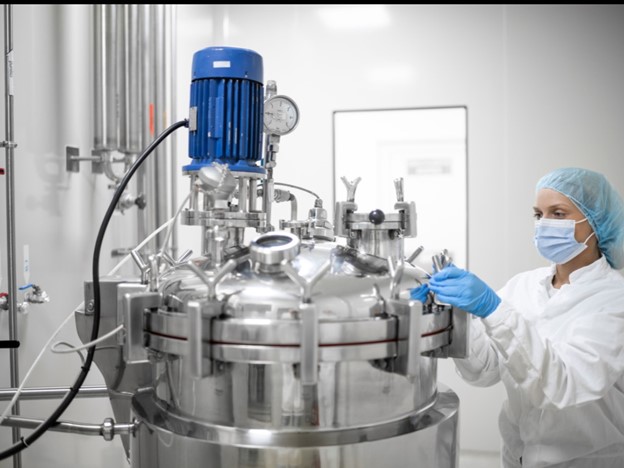Precision Fermentation
Exploring Precision Fermentation: Revolutionizing Food Production
In recent years, groundbreaking technology has gained traction in the food industry, promising to transform the way we produce everything from meats to dairy to beverages. This innovative approach, known as precision fermentation, represents a fusion of biotechnology, microbiology, and food science. In this blog post, we delve into what precision fermentation entails, its applications, the types of experts involved, and how they can help companies harness its potential.
What is Precision Fermentation?
Precision fermentation involves the controlled cultivation of microorganisms—such as bacteria, yeast, or fungi—in a controlled environment to produce specific food products or ingredients. Unlike traditional agriculture or animal husbandry, which relies on farming or breeding organisms, precision fermentation allows precise engineering and manipulation of microorganisms at the molecular level. This precision enables the production of a wide range of compounds, including proteins, enzymes, vitamins, and flavors, without the need for farming or extracting them from their natural sources.
Applications of Precision Fermentation
The applications of precision fermentation span various industries, revolutionizing the production of food and beverages, pharmaceuticals, and beyond. Some notable applications include:
Alternative Proteins: Precision fermentation enables the production of plant-based meats, dairy alternatives, and seafood substitutes with taste, texture, and nutritional profiles similar to their animal-derived counterparts.
Functional Ingredients: Microorganisms can be engineered to produce valuable functional ingredients, such as vitamins, antioxidants, probiotics, and enzymes used in various food and beverage formulations.
Flavor and Fragrance: Precisely controlled fermentation processes yield natural flavors and fragrances for use in foods, beverages, cosmetics, and personal care products, offering sustainable alternatives to traditional extraction methods.
Pharmaceuticals: Microbial fermentation is a key technology in the production of therapeutic proteins, vaccines, antibiotics, and other pharmaceuticals, ensuring consistency, purity, and scalability.
Biodegradable Plastics: Microorganisms can be engineered to produce biodegradable polymers and plastics, offering a sustainable alternative to conventional petroleum-based plastics. These bio-based plastics can be used in packaging, disposable utensils, and other single-use items, helping reduce plastic pollution and environmental impact.
Biofuels: Precision fermentation enables the production of biofuels such as ethanol, butanol, and biodiesel from renewable feedstocks such as sugars, lignocellulosic biomass, and algae. These biofuels serve as greener alternatives to fossil fuels, reducing greenhouse gas emissions and dependence on non-renewable resources.
Chemical Synthesis: Microbial fermentation can be used to synthesize a wide range of specialty chemicals, pharmaceutical intermediates, and fine chemicals with high purity and efficiency. This approach offers a more sustainable and cost-effective alternative to traditional chemical synthesis methods, which often rely on hazardous chemicals and energy-intensive processes.
Bioremediation: Certain microorganisms can be engineered to degrade pollutants and toxins in soil, water, and air through a process known as bioremediation. Precision fermentation technologies can enhance the effectiveness of bioremediation strategies, facilitating the cleanup of contaminated sites and the restoration of ecosystems.
Textile Production: Microbial fermentation can be employed to produce sustainable alternatives to conventional textiles and fibers. For example, microorganisms can be used to produce microbial cellulose for use in clothing, textiles, and non-woven materials, offering a biodegradable and eco-friendly alternative to cotton and synthetic fibers.
Personal Care Products: Precision fermentation can be used to produce ingredients for personal care products, such as cosmetics, skincare products, and fragrances. Microorganisms can be engineered to produce specialty ingredients, such as hyaluronic acid, collagen, and enzymes, used in various cosmetic formulations, offering sustainable and cruelty-free alternatives to traditional sources.
Agricultural Inputs: Microbial fermentation can be used to produce biofertilizers, biopesticides, and biostimulants that enhance crop productivity, improve soil health, and reduce reliance on synthetic agrochemicals. These microbial-based agricultural inputs offer sustainable and environmentally friendly solutions for modern agriculture.
Animal Feed Additives: Precision fermentation can be used to produce nutritional supplements, enzymes, and probiotics for use in animal feed formulations. These additives can improve animal health, enhance feed efficiency, and reduce the environmental footprint of livestock production.
Experts in Precision Fermentation
The development and implementation of precision fermentation technology requires a multidisciplinary team of experts with diverse skills and knowledge. Some key professionals involved in this field include:
- Bioprocess Engineers: These engineers design and optimize the fermentation processes, ensuring efficient production and scalability while maintaining product quality and consistency.
- Synthetic Biologists: Synthetic biologists manipulate the genetic makeup of microorganisms to optimize their production capabilities, such as enhancing protein expression or metabolic pathways.
- Food Scientists: Food scientists work on the formulation and sensory evaluation of products derived from precision fermentation, ensuring they meet consumer expectations in terms of taste, texture, and nutritional value.
- Regulatory Specialists: Regulatory specialists navigate the complex landscape of food safety regulations and ensure compliance with applicable laws and standards governing the production and marketing of fermented products.
Assisting Companies with Precision Fermentation
Experts in precision fermentation play a crucial role in assisting companies across various stages of product development and commercialization:
- Research and Development: Experts collaborate to research and develop novel microbial strains, fermentation processes, and product formulations tailored to meet specific market demands.
- Process Optimization: Bioprocess engineers and synthetic biologists optimize fermentation parameters to maximize product yield, minimize production costs, and enhance process efficiency.
- Quality Assurance: Food scientists and regulatory specialists ensure that products derived from precision fermentation meet stringent quality and safety standards, conducting thorough testing and analysis throughout the production process.
- Market Access and Expansion: Regulatory specialists facilitate market access by navigating regulatory hurdles and obtaining necessary approvals for the sale and distribution of precision-fermented products in domestic and international markets.
Conclusion
Precision fermentation represents a paradigm shift in food production, offering sustainable, scalable, and customizable solutions to address the growing challenges facing the global food system. With the expertise of bioprocess engineers, synthetic biologists, food scientists, and regulatory specialists, companies can harness the full potential of precision fermentation to innovate and deliver next-generation food and beverage products to consumers worldwide.
About
LEC Partners
LEC Partners
has over 180 experts that can help navigate your bioeconomy needs. If you need assistance with your precision fermentation projects and related matters, please contact us.Have some questions?
Not sure where to start?
Let's start a conversation. We're here to help you navigate
the bioeconomy with confidence.


